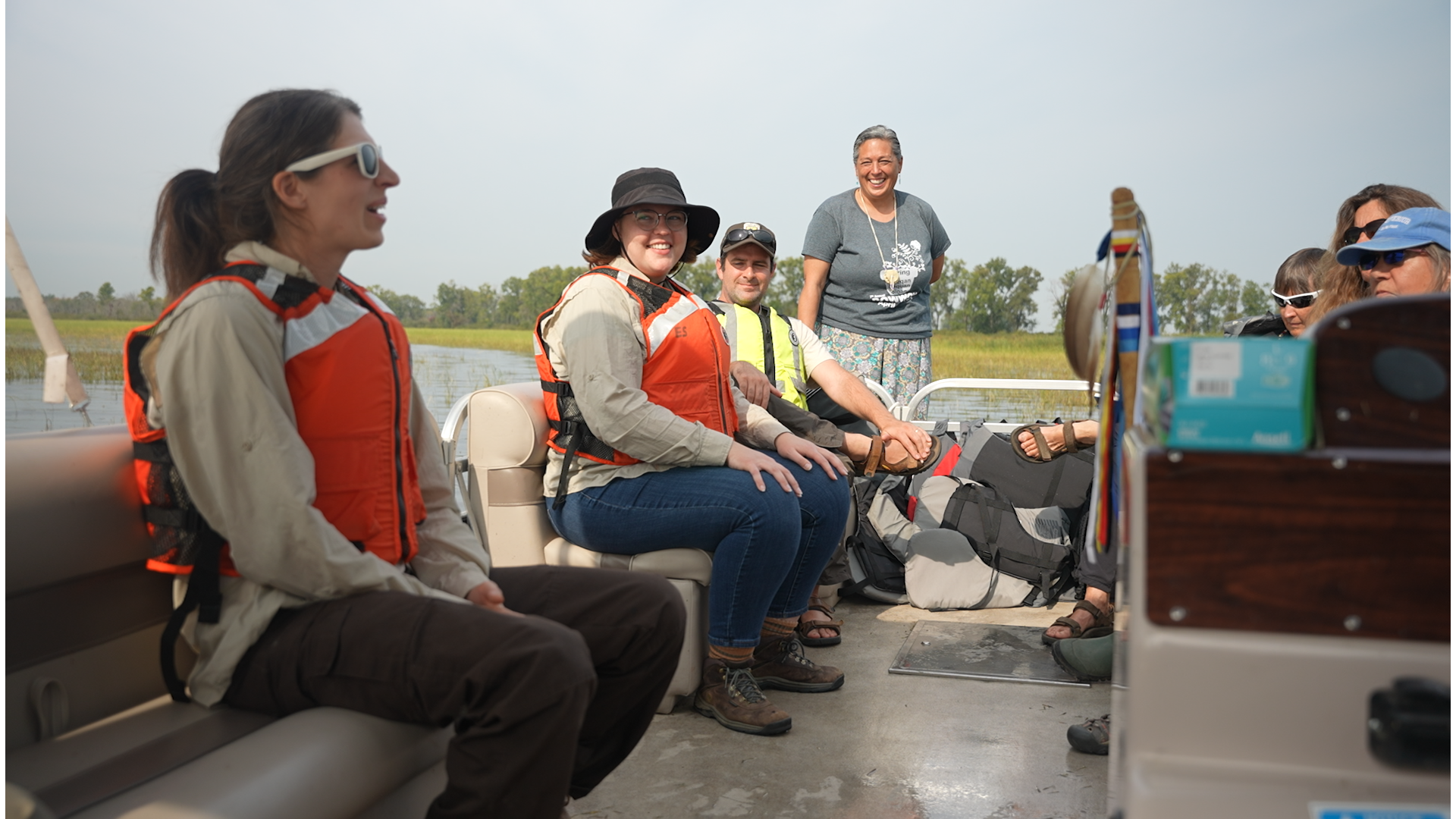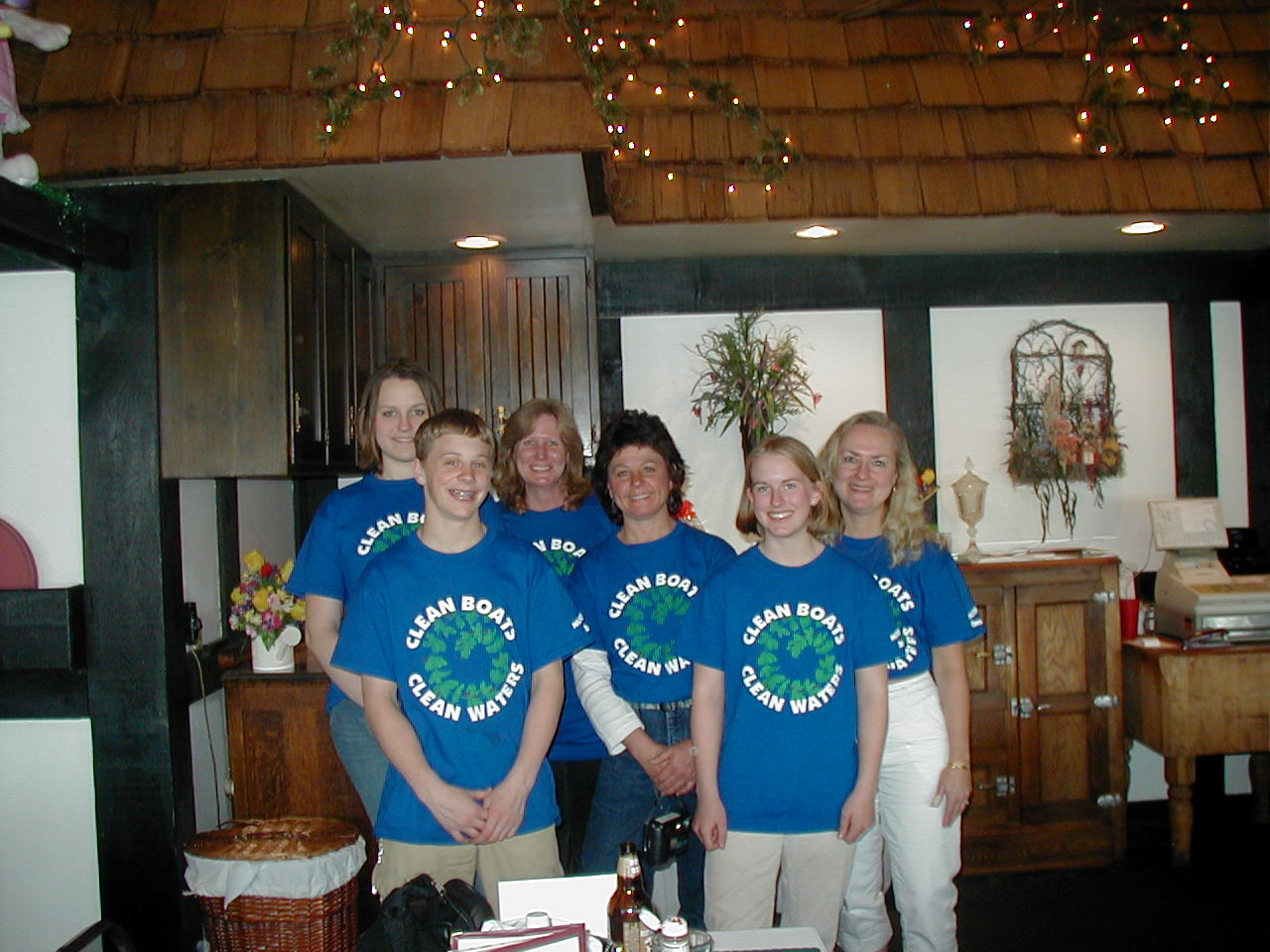As the state of Wisconsin’s population grows and water issues gain in complexity and number, demand for skilled water workers is expected to increase. According to the Wisconsin Department of Workforce Development’s 2016-2026 occupation projections, demand for hydrologists and environmental scientists with bachelor’s degrees will rise 6.5% and 12.6%, respectively.
A new Wisconsin Sea Grant-funded education project addresses this need by engaging undergraduate students at the University of Wisconsin Green Bay at Manitowoc in research and connecting the students to their communities. A professional master’s student from UW-Milwaukee School of Freshwater Sciences will also complete development of a water resource hub used by regional water organizations to provide cohesive stormwater messaging along Lake Michigan’s Wisconsin coastline. Even high school students are included in the project.
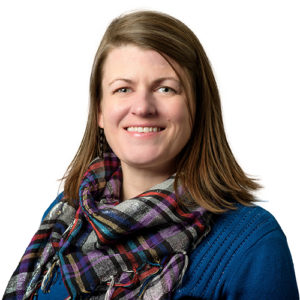
Deidre Peroff
“One of the objectives is to retain students in water-related STEM pathways and careers,” said Deidre Peroff, Wisconsin Sea Grant social science outreach specialist. “We are focusing on watershed education and helping students strengthen their skills to make them more marketable – ideally, to have a career in water, whatever that may look like.”
Peroff is part of a project team that involves representatives from the Southeastern Wisconsin Watersheds Trust, Inc., (nicknamed Sweetwater, for short), UW-Green Bay at Manitowoc, and the Lakeshore Natural Resource Partnership. Although initially inspired separately, the team members recognized similarities in their goals and developed the project together.
Many moving parts make up the project. Two of them are an annual Lakeshore Water Summit and a stormwater messaging resource hub.
The Lakeshore Water Summit is held during fall each year at UW-Green Bay at Manitowoc. It offers college students the chance to practice research presentations. For this project, freshman and sophomore interns will collect weekly measurements on Lake Michigan tributary streams during the summers of 2020-2022. Data includes pH, temperature, flow, turbidity, dissolved oxygen and E. coli, among others. The interns operate with guidance from UWGB biology professors Rebecca Abler and Rick Hein.
Funding from this project will allow the inclusion of high school students in the Summit, as well. Mentored by the undergraduate interns and their teachers, the high school students will also learn how to present scientific information from their water quality studies. They’ll have the opportunity to create scientific posters for the Summit or give informal presentations.
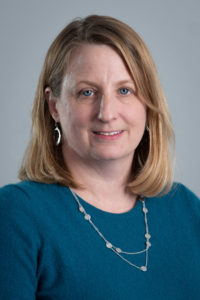
Rebecca Abler. Image credit: University of Wisconsin-Green Bay
“This project is going to really enhance the real-world aspect of science for our students,” said Abler. “They won’t just be collecting data. They’ll be learning how to communicate to various audiences. They’re not just doing this for faculty members – they’re doing this for the community – which is our goal at the university. So it’s just really exciting.”
The graduate intern who will be mentoring the undergraduate students will also work on the stormwater messaging resource hub with advisement from Jacob Fincher, acting executive director of Sweetwater, and Peroff.
The hub is a web-based clearinghouse of information related to stormwater pollution prevention. Sweetwater has created a framework for the hub already, and plans to have the master’s intern work with the Lake Michigan Stakeholders Communication Committee to pick the most applicable stormwater education materials. Once those are all loaded into the website, Fincher said the intern will remind stormwater groups along the coast when certain messages should be publicized and how to do that.
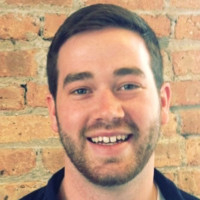
Jacob Fincher. Image credit: Sweetwater
Fincher offered a fictional example of a billboard as an explanation of the concept. “If I were to drive from Kenosha and see a billboard about stormwater pollution prevention . . . and see the logo of a certain organization in the corner, then drive up past Milwaukee and see that same message but with a different logo, all the way up to Port Washington to Door County to Green Bay and Marinette, and continue to see that same message provided by different organizations – that takes coordination and facilitation. That’s where the intern will help us,” Fincher said.
The master’s intern will also work with Peroff to develop a science data communication toolkit, which will be used to mentor the undergraduate interns at UW-Green Bay at Manitowoc. The toolkit will help the students present their findings at the Summit in an understandable way.
Peroff summed up the complex project with this: “The faculty are going to be mentoring the undergraduates. The undergrads are going to mentor the high school students. The graduate students are mentoring the undergraduates. We’re (project staff) mentoring the graduate students. So, it’s this broad connection of mentorship, and then the key is having students share what they learned so communities can gain knowledge as well.”




